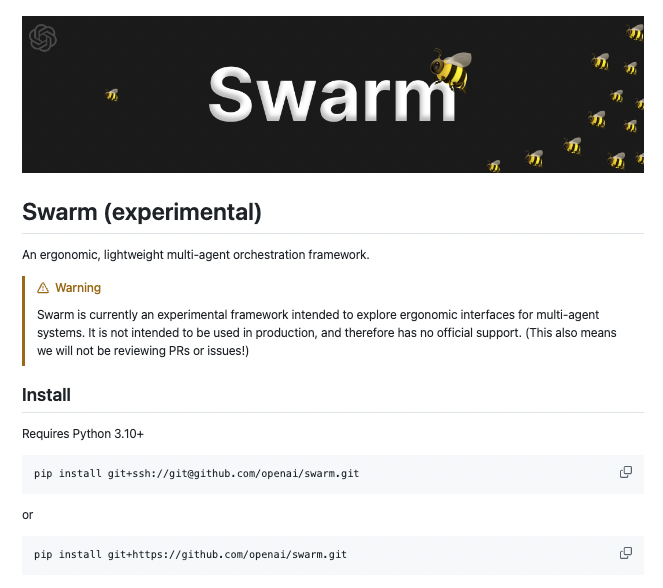
Challenges in Multi-Agent Systems
In the fast-changing world of artificial intelligence, developers face challenges in managing complex systems where multiple AI agents work together. These systems often struggle with coordination, control, and scalability, making deployment and testing difficult.
Introducing the Swarm Framework
OpenAI presents the Swarm Framework to simplify the management of multi-agent systems. This experimental framework makes it easier for developers to coordinate, execute, and test AI agents in a lightweight and efficient manner.
Key Features of Swarm
- Agent Coordination: Swarm allows seamless handoffs between agents, enabling complex interactions while keeping control manageable.
- Lightweight Design: Developers can easily test and refine configurations without heavy infrastructure requirements.
- Built on ChatCompletions: This foundation provides versatility for creating and deploying multi-agent systems.
Why Swarm Matters
The Swarm Framework is significant for several reasons:
- Streamlined Communication: It simplifies how agents communicate and transfer tasks, essential for specialized AI agents.
- Efficient Iteration: Developers can quickly improve their multi-agent setups without being overwhelmed by complexity.
- Reliability: Its controllable nature makes it ideal for researchers and developers focused on efficient orchestration.
Conclusion
OpenAI’s Swarm Framework addresses major challenges in multi-agent orchestration by prioritizing simplicity and control. It offers a practical and lightweight infrastructure that makes it easier to build and manage multi-agent systems, paving the way for broader accessibility in AI development.
Installation
To install Swarm, use the following commands:
- Using SSH:
pip install git+ssh://git@github.com/openai/swarm.git - Using HTTPS:
pip install git+https://github.com/openai/swarm.git
Usage Example
Here’s a simple example of how to use Swarm:
from swarm import Swarm, Agent
client = Swarm()
def transfer_to_agent_b():
return agent_b
agent_a = Agent(
name="Agent A",
instructions="You are a helpful agent.",
functions=[transfer_to_agent_b],
)
agent_b = Agent(
name="Agent B",
instructions="Only speak in Haikus.",
)
response = client.run(
agent=agent_a,
messages=[{"role": "user", "content": "I want to talk to agent B."}],
)
print(response.messages[-1]["content"])
Example Response:
Hope glimmers brightly,
New paths converge gracefully,
What can I assist?
Stay Connected
For more information, visit our GitHub. Follow us on Twitter, join our Telegram Channel, and connect with our LinkedIn Group. If you appreciate our work, subscribe to our newsletter and join our 50k+ ML SubReddit.
Upcoming Event
RetrieveX – The GenAI Data Retrieval Conference on Oct 17, 2023.
AI Solutions for Your Business
OpenAI’s Swarm Framework can help your company stay competitive. Here’s how:
- Identify Automation Opportunities: Find customer interaction points that can benefit from AI.
- Define KPIs: Ensure measurable impacts from your AI initiatives.
- Select an AI Solution: Choose tools that fit your needs and allow customization.
- Implement Gradually: Start small, gather data, and expand AI use wisely.
For AI KPI management advice, contact us at hello@itinai.com. For ongoing insights, follow us on Telegram or Twitter.
Explore AI Solutions
Discover how AI can transform your sales processes and customer engagement at itinai.com.



























